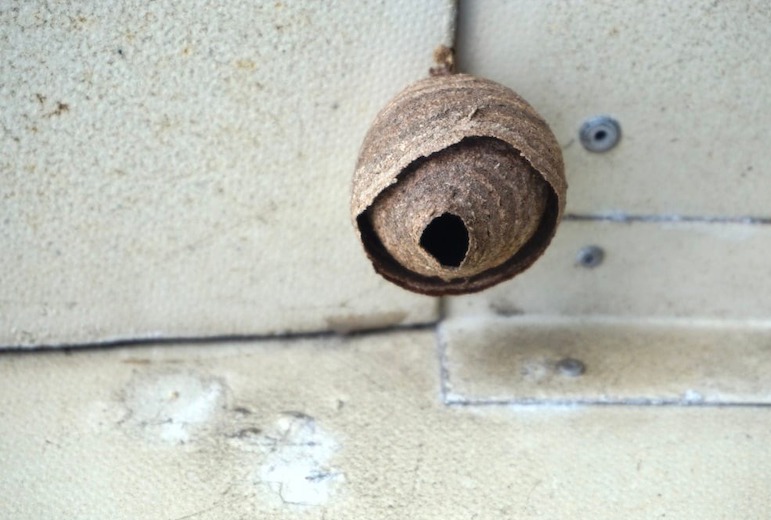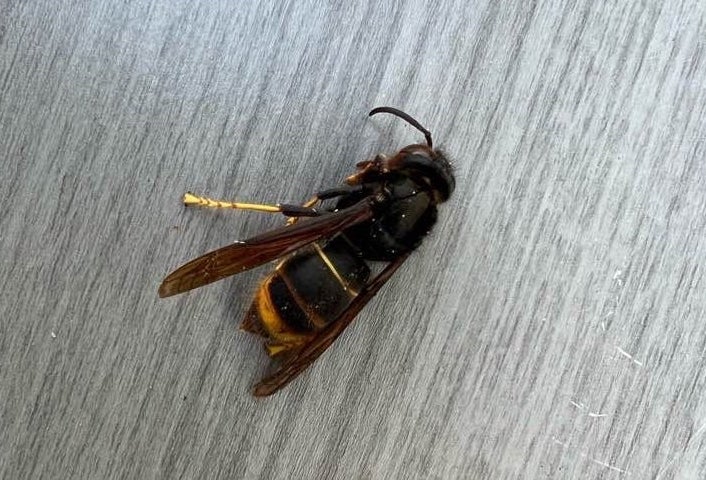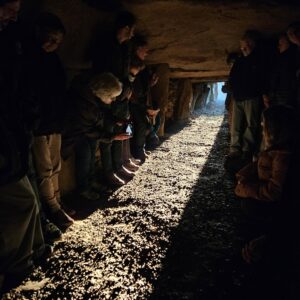
Jersey’s first Asian hornet nest of the year was discovered earlier this month after volunteers received a callout from a local business at Longueville.
On arrival, they found a small embryonic nest (one built entirely by the queen) on the outside of the firm’s main entrance door. Local beekeeper and member of the Jersey Asian hornet group, John de Carteret, removed the nest from the site.
‘During the hour I was watching, there were only two movements by the queen,’ he said. ‘The first one provided absolute identification, the second allowed me to quickly ‘cut’ the nest away, and drop it into a pot with the queen securely inside.’
John then moved the queen to a separate pot so he could later examine the inside of the nest. ‘Previous experiences have shown that kept together for any length of time, the queen will completely destroy the nest and its precious contents,’ he said.
The nest, which was around 4.5 cm in diameter, contained eleven eggs and four larvae at different stages of development.

Asian hornets are an invasive non-native species. They are highly aggressive predators of native insects and pose a particular threat to honey bees.
Asian hornet queens emerge in spring to begin building a nest. So far this year, over 20 queens have been found. Many of these were discovered in official traps placed at sites across the Island, including one at Howard Davis Park where the group have caught hornets every year since 2017.
How to identify Asian hornets
Asian hornets are larger than a normal wasp, with queens measuring up to 33 mm in length, and worker hornets measuring up to 25 mm.
They are much darker in colour and have yellow legs. Key features are the distinct mustard coloured band at the rear, and the bright yellow ‘belt’ around their waist.
If you spot an Asian hornet, you can report it by phone (01534 441633), email (asianhornet@gov.je) or through the free Asian Hornet Watch smartphone app from Apple and Android app stores.
Provide the location and, where possible, a photograph.

All suspected nests should be reported and you should never attempt to disturb, remove or treat them yourself. Asian hornets have been known to defend their nest area aggressively.
If you spot a hornet from July to October, once you have given the information to the Asian hornet coordinator, the hornet can be released. It is helpful to let the coordinator know which direction the hornet flies off in.
From November to June, if you are confident enough and can do so safely, the hornet should be captured and kept until advice is provided by the coordinator.
Further information is available on the Government of Jersey website: https://www.gov.je/Environment/LandMarineWildlife/Insects/pages/asian-hornet-sighting,-identification-and-reporting.aspx
Photos by John de Carteret.




